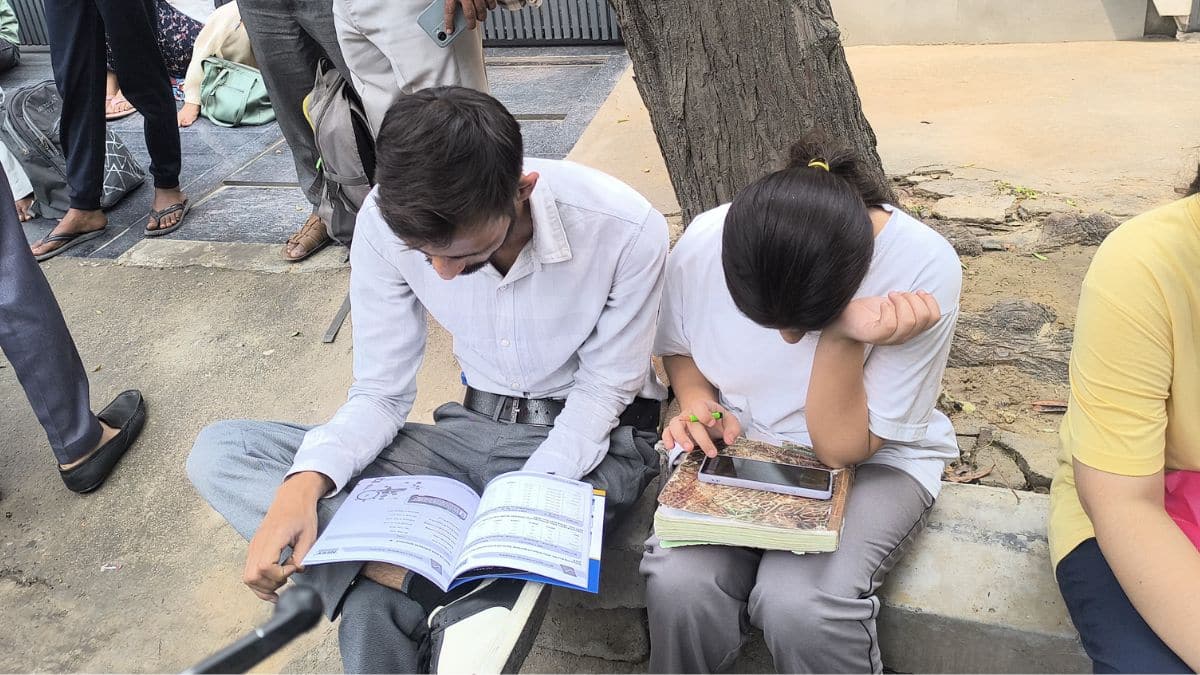NEET Counselling 2025: Bombay HC orders re-evaluation of candidate declared ‘ineligible’ for PwD quota
Musab Qazi | September 26, 2025 | 06:45 PM IST | 4 mins read
Uzma Khan was declared ineligible for 5% PwBD quota in MBBS admissions by JJ Hospital; she will now be evaluated by AIIMS Nagpur but no seat will be held for her
NEET 2026 Free Mock Test with Solutions
Download the NEET 2026 Free Mock Test PDF with detailed solutions. Practice real exam-style questions, analyze your performance, and enhance your preparation.
Download EBook
The Bombay High Court (HC) on Friday allowed re-evaluation of a visually impaired medical aspirant’s disability after she was declared ineligible for 5% persons with benchmark disability (PwBD) reservation.
Live Updates: NEET PG 2025 Supreme Court hearing
Uzma Khan, the petitioner and Mumbai resident, had challenged the assessment by the medical board at the city’s JJ Hospital, which had concluded that the candidate doesn’t belong to the low-vision category, despite holding a certificate of 40% benchmark disability, the threshold for PwBD quota.
She had also questioned a clause in the National Medical Commission’s (NMC) new interim guidelines for disability assessment that required the candidate’s visual impairment to be brought down to less than 40% by using low vision aid in order to benefit from the reservation and pursue MBBS.
A bench of justices permitted the student to undergo a re-evaluation by the medical board at the All India Institute of Medical Sciences (AIIMS) Nagpur, another designated disability certification centre, on Tuesday. However, the Bombay HC refused to keep an MBBS seat vacant for the petitioner till the case is resolved, as was requested by the candidate. The plea will subsequently be heard again next Friday.
Also read AYUSH NEET Counselling: Maharashtra colleges refuse waivers to women, EBC students; demand full fees
At the central level, counselling is conducted by the Medical Counselling Committee (MCC) and for Maharashtra, by the CET Cell (Maha CET Cell).
NEET UG Counselling: NMC’s disability norms
The petition comes against the backdrop of a landmark decision delivered by the Supreme Court (SC) earlier this year, asking NMC to overhaul its disability norms. The apex court, while calling the medical education regulator’s previous guidelines ‘unconstitutional’ and ‘discriminatory’, sought a shift from the rigid criteria to a more subjective assessment of an individual’s capabilities.
Following the court’s directive, the commission, in July, issued “interim” guidelines for determining the candidates’ disability and eligibility for the ongoing NEET counselling 2025 process. Among other things, the document requires the candidates to submit their Unique Disability ID and self-certified affidavit, to be verified by the designated medical boards.
With the two regular rounds of MBBS admissions already over and the third round slated to begin on Monday, Khan had sought an urgent hearing of her plea at HC. However, with the court refusing to expedite the matter, the petitioner moved SC. Acknowledging the urgency of the issue, the apex court, on Thursday, allowed the petitioner to mention the matter again before HC and seek an earlier hearing, resulting in HC listing the matter on Friday.
JJ Hospital did ‘no functional assessment’
In her plea, Khan claimed that JJ Hospitals’ medical board had declared her ineligible for PwBD quota simply on the sole basis of her self-declaration that she did not use low vision aids. “No functional assessment was undertaken, no reasonable accommodation was considered, and no reasoned justification was provided [by the board],” reads the petition.
The petitioner believes that JJ Hospital’s medical board extended its brief by evaluating her disability status, which was already established by her UDID. It was pointed out that the board simply needed to ascertain the candidate’s functionality for the medical course.
NMC’s interim guidelines stipulate that those with visual disability of more than 40% may be made eligible to pursue MBBS and may be given reservation, subject to the condition that the visual disability is brought to a level of less than the benchmark of 40% with advanced low vision aids. The self-declaration pro-forma prescribed in these guidelines require the candidates to affirm that they use low vision aids and can perform using them.
However, the petitioner argued that this requirement is “medically and legally flawed”. “Benchmark disability is determined after best possible correction and does not contemplate further “reduction” of impairment. Such a condition effectively excludes all persons with blindness and low vision from the benefit of reservation,” says the petition.
The plea contends that the JJ Hospital’s rejection runs contrary to SC’s directive requiring the disability assessment boards should positively record whether the disability of the candidate will or will not come in the way of them pursuing their course.
“In the Petitioner’s case, the certified 40% low vision already reflects her maximum attainable functional vision. To then require her to further declare that her disability falls below 40% with the use of aid contradicts the very basis of benchmark disability certification and results in an arbitrary exclusion of eligible candidates, as it assumes further improvement beyond what has already been clinically established as their best possible corrected state,” argues the plea.
Follow us for the latest education news on colleges and universities, admission, courses, exams, research, education policies, study abroad and more..
To get in touch, write to us at news@careers360.com.
Next Story
]Meet the small-town college teachers in Stanford University’s list of top 2% scientists in the world
Stanford University’s list of top scientists features sons of daily-wagers and farmers, now teaching in colleges in Pulwama, Nagpur, Solapur and Rasipuram. This is how they got into the top 2%
Musab Qazi